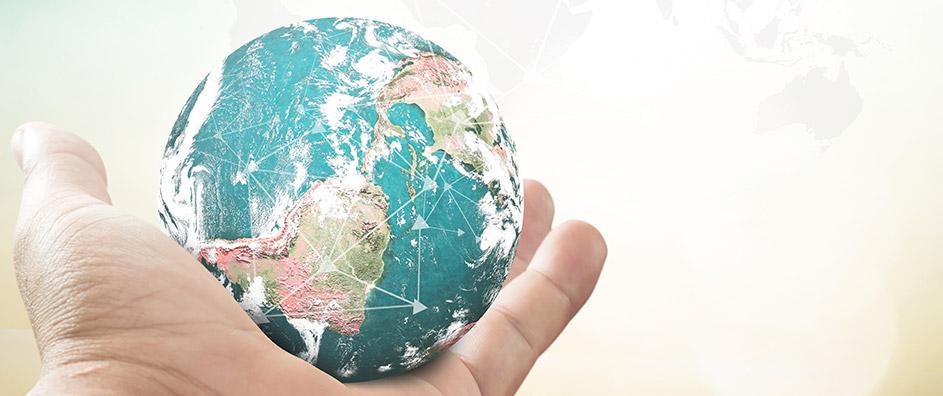In contemporary discourse, the juxtaposition of division and unity stands as a significant theme, particularly within the framework of Bahá’í teachings. The intricate interplay between these two concepts invites an examination of societal structures and personal relationships. Can one truly envision a just and sustainable society without first reconciling the divisive elements that pervade human existence? This inquiry poses a profound challenge that transcends individual contemplation and demands collective engagement.
The Bahá’í Faith, founded in the 19th century by Bahá’u’lláh, presents a unique perspective on the necessity of unity. Central to its teachings is the idea that humanity is like a single organism, where the health and well-being of one part reflect upon the entirety. The notion of “unity in diversity” emphasizes that while differences among individuals, cultures, and ideologies are natural, they must be harmonized for the greater good. This idea serves as a cornerstone for moving from division to unity, an essential prerequisite for progress toward a just and sustainable society.
To embark on this transformative journey, one must first acknowledge the roots of division. Historical animosities, cultural rivalries, and systemic injustices contribute to a fractious world. The Bahá’í teachings urge individuals to rise above prejudices—cultural, racial, gender-based, or religious—by recognizing the underlying spiritual principle of the oneness of humanity. Such acknowledgment is not merely a passive acceptance but rather an active duty to engage and capacitate oneself to contribute to a more cohesive society.
Unity does not imply uniformity. Embracing diversity involves appreciating different perspectives and experiences. The Bahá’í teachings encourage dialogue, promoting the idea that constructive discussions can help mend the bonds that have been frayed by misunderstanding and conflict. This gentle yet firm approach necessitates an open heart and mind, prompting individuals to examine their own biases critically. This introspection fosters a culture of empathy, which is crucial for forging connections across various divides.
The Bahá’í framework extends the concept of unity into the realm of societal structures. A just society, as envisioned by Bahá’í teachings, is one that safeguards the rights and dignity of every individual. This fairness does not simply exist in legal statutes; it must permeate the very fabric of civic life. The cultivation of such a society entails a commitment to equitable economic systems, accessible education, and health care, reflecting a holistic approach to community building. It also necessitates addressing the historical inequities faced by marginalized communities. Without this concerted effort, the ideal of a sustainable society remains an elusive aspiration.
A sustainable society, as envisioned within the Bahá’í framework, hinges upon a cooperative strategy that integrates environmental stewardship with social equity. The ecological crisis we face today is not just a crisis of resources; it is a crisis of consciousness. The teachings advocate for a shift in perspective, urging individuals and communities to recognize their interdependence with the natural world. This acknowledgment is a vital component in the migration from division – where exploitation and degradation prevail – to unity, which fosters responsible coexistence with the environment.
However, the challenge of achieving this unity is manifold. One pressing question arises: How do we galvanize collective action in a world marked by individualism? It is crucial to forge avenues for collaboration and solidarity that transcend personal divides. Bahá’í principles suggest that individuals and communities should seek shared goals, thereby motivating collective endeavors that embody unity and transform societal norms. This necessitates the development of a participatory culture where every voice is valued, enhancing civic engagement and encouraging active citizenship.
Education plays a pivotal role in this transformative process. A societal shift from division to unity hinges upon integrating Bahá’í principles into educational curricula. This endeavor involves teaching the values of service, equity, and appreciation of diversity at a young age, preparing future generations to build a more harmonious world. By fostering a conducive environment for dialogue, innovation, and creativity, educational frameworks can cultivate a mindset geared toward collaborative problem-solving.
As humanity strives to traverse this challenging landscape, it becomes increasingly apparent that faith and action must unite. The Bahá’í teachings underscore that spirituality should not remain sequestered from social engagement. Bahá’ís believe that genuine devotion translates into action; hence, followers are urged to engage in social initiatives aimed at the betterment of their communities. This confluence of faith and action not only accelerates the movement toward unity but also amplifies the impact of individual efforts toward creating just and sustainable systems.
Ultimately, the transition from division to unity is not a linear path; it is a complex journey that demands persistence, resilience, and a shared vision. The Bahá’í teachings offer a robust framework for understanding the importance of unity in fostering a just and sustainable society. By promoting collective responsibility, empathy, and ethical action, individuals are empowered to rise above divisions and contribute meaningfully to the collective welfare. As humanity navigates these tumultuous waters, the challenge remains: Will we, as stewards of our shared destiny, strive to dismantle the barriers that keep us apart, coalescing instead into an unwavering force for unity and justice? The answer lies in our commitment to this shared journey.
